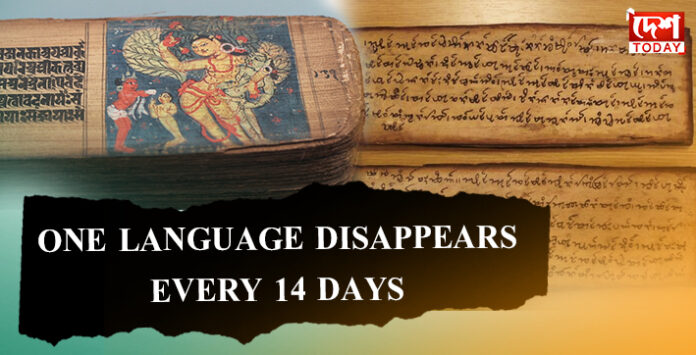“Sanskrit is one of the world’s oldest and richest languages. Along with the Egyptian language, Sanskrit is among the most ancient, with inscriptions dating back over 5,000 years. However, the so-called ‘divine language’ now survives among only about 5,000 people in a village called Mattur in Tamil Nadu. Due to its complex grammar and restrictions on its use, the language has nearly vanished. We have kept 33 crore gods alive, but we let the divine language die.”
These were the words of Manoj Kumar Goswami, the Editor-in-Chief of Amar Asom and a Sahitya Akademi Award-winning writer, during a special event at Tezpur University on the occasion of International Mother Language Day on Friday. Invited as a special guest at the event, organized by the Assamese Department and held at the Journalism and Mass Communication department’s auditorium, the eminent writer-journalist further stated:
“There are around 7,000 languages in the world, and according to the United Nations, one language disappears every 14 days. Even though Assamese has been recognized as a classical language, it will not survive unless it is actively used. Great thinkers like Godard and Kurosawa made films in their mother tongue, and Einstein formulated his thoughts in his native language. I firmly believe that the mother tongue is the best medium for creativity. However, our use of language, our conversations, and even our verbal interactions are decreasing.
Elon Musk once said that just 12 books shaped his intellect. Ambani reads books. Mark Zuckerberg reads books. These individuals gain knowledge from books, but ironically, they have created platforms that discourage reading and merely provide information instead.”
Drawing a historical parallel, Goswami cited the revival of Hebrew, once considered a dead language but later resurrected by the Israelis, uniting 9.7 million Jews. “Despite having 2.5 crore speakers, we Assamese suffer from an inferiority complex regarding our language. Hindi literature begins with Premchand and seemingly ends with Kumar Vishwas, but Assamese literature has produced many works of global standard—from Lakshminath Bezbaroa to Mahim Bora, from Dr. Bhaba Prasad Saikia to Saurav Kumar Chaliha. The real question is whether our writers today are capable and aware enough to connect with the new generation. We must systematically open the doors of our language to new words and ideas.
Dr. Bhaba Prasad Saikia once said, ‘Science and literature are not separate; they are merely different rooms in the same house, separated only by a door.’ The nations leading in technology and innovation are also literary powerhouses—Germany and France being prime examples. We must respect the emotional connection that Bengali speakers have with their language. However, artificial intelligence is challenging the very essence of language. AI can diminish human emotional expression and cognitive abilities, as seen in the rise of tools like ChatGPT in the US and DeepSeek in China. Knowing English does not necessarily mean understanding English literature.”

